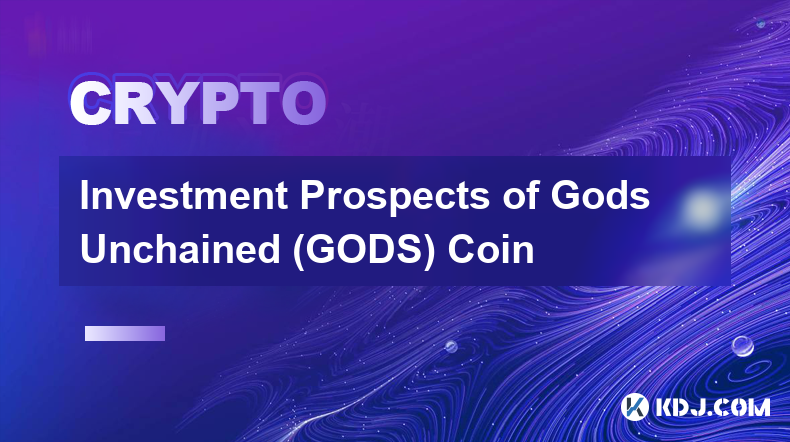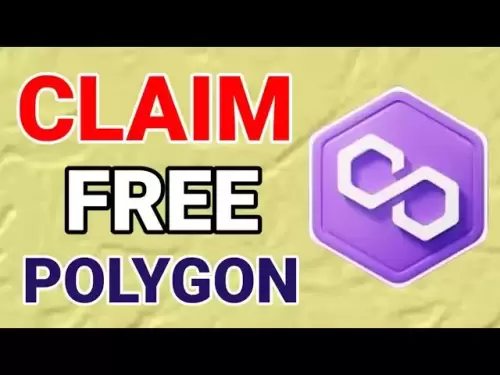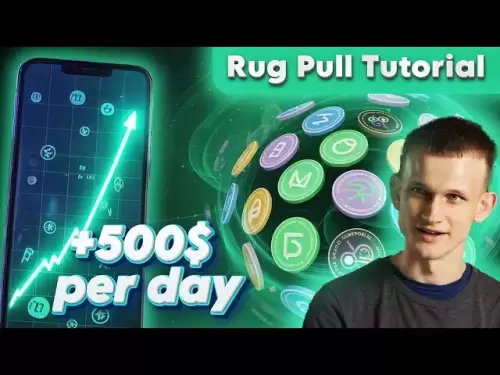-
 Bitcoin
Bitcoin $106,754.6083
1.33% -
 Ethereum
Ethereum $2,625.8249
3.80% -
 Tether USDt
Tether USDt $1.0001
-0.03% -
 XRP
XRP $2.1891
1.67% -
 BNB
BNB $654.5220
0.66% -
 Solana
Solana $156.9428
7.28% -
 USDC
USDC $0.9998
0.00% -
 Dogecoin
Dogecoin $0.1780
1.14% -
 TRON
TRON $0.2706
-0.16% -
 Cardano
Cardano $0.6470
2.77% -
 Hyperliquid
Hyperliquid $44.6467
10.24% -
 Sui
Sui $3.1128
3.86% -
 Bitcoin Cash
Bitcoin Cash $455.7646
3.00% -
 Chainlink
Chainlink $13.6858
4.08% -
 UNUS SED LEO
UNUS SED LEO $9.2682
0.21% -
 Avalanche
Avalanche $19.7433
3.79% -
 Stellar
Stellar $0.2616
1.64% -
 Toncoin
Toncoin $3.0222
2.19% -
 Shiba Inu
Shiba Inu $0.0...01220
1.49% -
 Hedera
Hedera $0.1580
2.75% -
 Litecoin
Litecoin $87.4964
2.29% -
 Polkadot
Polkadot $3.8958
3.05% -
 Ethena USDe
Ethena USDe $1.0000
-0.04% -
 Monero
Monero $317.2263
0.26% -
 Bitget Token
Bitget Token $4.5985
1.68% -
 Dai
Dai $0.9999
0.00% -
 Pepe
Pepe $0.0...01140
2.44% -
 Uniswap
Uniswap $7.6065
5.29% -
 Pi
Pi $0.6042
-2.00% -
 Aave
Aave $289.6343
6.02%
Investment Prospects of Gods Unchained (GODS) Coin
Gods Unchained (GODS) is a promising investment in the growing play-to-earn gaming sector, driven by its innovative gameplay, strong community, and limited token supply.
Dec 24, 2024 at 04:31 am

Investment Prospects of Gods Unchained (GODS) Coin
Gods Unchained (GODS) is a play-to-earn (P2E) collectible card game built on the Ethereum blockchain. Players can collect, trade, and battle NFT-based cards, earning GODS tokens as rewards. The game has gained popularity among gamers and crypto enthusiasts alike, leading many to speculate on the future investment prospects of GODS.
Key Points:
- Overview of Gods Unchained
- Market Performance
- Tokenomics and Use Cases
- Competitive Landscape
- Investment Drivers and Risks
- Future Outlook
Overview of Gods Unchained
Gods Unchained is a digital card game where players collect, trade, and battle cards representing mythical creatures and heroes. The game operates on a free-to-play model, where players can earn GODS tokens by participating in battles, quests, and daily challenges. GODS tokens can be used to purchase booster packs, forge new cards, or participate in governance decisions.
The game boasts high-quality graphics, innovative gameplay mechanics, and a strong development team. It has attracted a large and active player base, with over 1 million users worldwide. The game's success is primarily attributed to its play-to-earn model, which allows players to earn real-world value through their in-game activities.
Market Performance
The GODS token was launched in August 2021 and has since experienced significant volatility. The token's initial price was around $0.15 and it quickly surged to over $1 in September 2021. However, it crashed in March 2022, following the broader cryptocurrency market downturn.
Despite the setback, the GODS token has recovered and continues to show promise. It has consistently ranked among the top 500 cryptocurrencies by market capitalization, indicating strong investor interest. As of July 2023, the GODS token price is around $0.25, representing a significant increase over its 2022 lows.
Tokenomics and Use Cases
GODS is the native utility token of the Gods Unchained ecosystem. It serves several important functions:
- Rewards: Players earn GODS tokens for winning battles, completing quests, and participating in community events.
- Purchases: GODS tokens can be used to buy booster packs that contain new cards for players' decks.
- Forging: Players can consume GODS tokens to forge new cards, enhance existing ones, or create rare and powerful cards.
- Governance: GODS token holders can participate in the governance of the Gods Unchained DAO, where they can vote on proposals and shape the future of the game.
The total supply of GODS is limited to 500 million tokens. The token distribution is carefully managed to prevent inflation and ensure the long-term value of the GODS ecosystem.
Competitive Landscape
Gods Unchained faces competition from several other P2E card games, including:
- Axie Infinity: One of the most popular P2E games, involving the collection and breeding of digital pets.
- Splinterlands: Another popular NFT card game with a large and dedicated player base.
- Hearthstone: A popular digital card game by Blizzard Entertainment, which has transitioned to a free-to-play model.
- Magic: The Gathering Arena: A popular digital card game based on the classic tabletop game by Wizards of the Coast.
Gods Unchained distinguishes itself from its competitors through its unique gameplay, high-quality graphics, and strong focus on community engagement. The game has also partnered with leading blockchain companies, such as Immutable X and Polygon, to enhance its scalability and interoperability with other Web3 platforms.
Investment Drivers and Risks
Several factors could drive the investment potential of GODS:
- Growing P2E Market: The P2E gaming sector is rapidly growing, with players looking for games that offer both entertainment and financial rewards.
- Strong Gameplay and Community: Gods Unchained boasts innovative gameplay and a dedicated player base, which can contribute to long-term growth.
- Limited Token Supply: The limited supply of GODS tokens helps to maintain the value of the ecosystem over time.
- Multi-Platform Support: Gods Unchained is available on multiple platforms, including PC, Mac, mobile, and web, increasing its accessibility to players worldwide.
However, investors should also consider some potential risks:
- Cryptocurrency Market Volatility: The cryptocurrency market is highly volatile, which can affect the price of GODS tokens.
- Competition: There are several other P2E card games competing for players and investors.
- Regulatory Uncertainties: The P2E gaming industry is still relatively new and may face regulatory uncertainties in some jurisdictions.
- In-Game Inflation: If the game's economy is not managed properly, it could lead to inflation of in-game assets, diluting the value of rewards.
Future Outlook
The future of Gods Unchained and the GODS token looks promising. The game has shown strong growth and continues to attract new players and investors. The developers are committed to improving the game, expanding its features, and promoting the adoption of the GOD
Disclaimer:info@kdj.com
The information provided is not trading advice. kdj.com does not assume any responsibility for any investments made based on the information provided in this article. Cryptocurrencies are highly volatile and it is highly recommended that you invest with caution after thorough research!
If you believe that the content used on this website infringes your copyright, please contact us immediately (info@kdj.com) and we will delete it promptly.
- Parataxis Holdings & Bridge Biotherapeutics: A Bitcoin Treasury Play in South Korea
- 2025-06-20 20:25:12
- Pi Network Price Prediction: Navigating June 2025's Uncertainties
- 2025-06-20 20:25:12
- AI Chip Maker Cerebras Hacked: Crypto Scam Alert!
- 2025-06-20 20:45:13
- dYdX Surge Program: Leveling Up DeFi Trading with Incentives
- 2025-06-20 20:45:13
- Bitcoin Breakout Watch: Can BTC Surge to $100K and Beyond?
- 2025-06-20 20:50:12
- Blockchain, Climate Action, Global Platform: BigWater Protocol Leading the Charge
- 2025-06-20 21:05:12
Related knowledge

How to customize USDT TRC20 mining fees? Flexible adjustment tutorial
Jun 13,2025 at 01:42am
Understanding USDT TRC20 Mining FeesMining fees on the TRON (TRC20) network are essential for processing transactions. Unlike Bitcoin or Ethereum, where miners directly validate transactions, TRON uses a delegated proof-of-stake (DPoS) mechanism. However, users still need to pay bandwidth and energy fees, which are collectively referred to as 'mining fe...

USDT TRC20 transaction is stuck? Solution summary
Jun 14,2025 at 11:15pm
Understanding USDT TRC20 TransactionsWhen users mention that a USDT TRC20 transaction is stuck, they typically refer to a situation where the transfer of Tether (USDT) on the TRON blockchain has not been confirmed for an extended period. This issue may arise due to various reasons such as network congestion, insufficient transaction fees, or wallet-rela...

How to cancel USDT TRC20 unconfirmed transactions? Operation guide
Jun 13,2025 at 11:01pm
Understanding USDT TRC20 Unconfirmed TransactionsWhen dealing with USDT TRC20 transactions, it’s crucial to understand what an unconfirmed transaction means. An unconfirmed transaction is one that has been broadcasted to the blockchain network but hasn’t yet been included in a block. This typically occurs due to low transaction fees or network congestio...

What to do if USDT TRC20 transfers are congested? Speed up trading skills
Jun 13,2025 at 09:56am
Understanding USDT TRC20 Transfer CongestionWhen transferring USDT TRC20, users may occasionally experience delays or congestion. This typically occurs due to network overload on the TRON blockchain, which hosts the TRC20 version of Tether. Unlike the ERC20 variant (which runs on Ethereum), TRC20 transactions are generally faster and cheaper, but during...

The relationship between USDT TRC20 and TRON chain: technical background analysis
Jun 12,2025 at 01:28pm
What is USDT TRC20?USDT TRC20 refers to the Tether (USDT) token issued on the TRON blockchain using the TRC-20 standard. Unlike the more commonly known ERC-20 version of USDT (which runs on Ethereum), the TRC-20 variant leverages the TRON network's infrastructure for faster and cheaper transactions. The emergence of this version came as part of Tether’s...

How to monitor large USDT TRC20 transfers? Tracking tool recommendation
Jun 12,2025 at 06:49pm
Understanding USDT TRC20 TransfersTether (USDT) is one of the most widely used stablecoins in the cryptocurrency ecosystem. It exists on multiple blockchains, including TRON (TRC20). The TRC20 version of USDT operates on the TRON network and offers faster transaction speeds and lower fees compared to its ERC-20 counterpart on Ethereum. When discussing l...

How to customize USDT TRC20 mining fees? Flexible adjustment tutorial
Jun 13,2025 at 01:42am
Understanding USDT TRC20 Mining FeesMining fees on the TRON (TRC20) network are essential for processing transactions. Unlike Bitcoin or Ethereum, where miners directly validate transactions, TRON uses a delegated proof-of-stake (DPoS) mechanism. However, users still need to pay bandwidth and energy fees, which are collectively referred to as 'mining fe...

USDT TRC20 transaction is stuck? Solution summary
Jun 14,2025 at 11:15pm
Understanding USDT TRC20 TransactionsWhen users mention that a USDT TRC20 transaction is stuck, they typically refer to a situation where the transfer of Tether (USDT) on the TRON blockchain has not been confirmed for an extended period. This issue may arise due to various reasons such as network congestion, insufficient transaction fees, or wallet-rela...

How to cancel USDT TRC20 unconfirmed transactions? Operation guide
Jun 13,2025 at 11:01pm
Understanding USDT TRC20 Unconfirmed TransactionsWhen dealing with USDT TRC20 transactions, it’s crucial to understand what an unconfirmed transaction means. An unconfirmed transaction is one that has been broadcasted to the blockchain network but hasn’t yet been included in a block. This typically occurs due to low transaction fees or network congestio...

What to do if USDT TRC20 transfers are congested? Speed up trading skills
Jun 13,2025 at 09:56am
Understanding USDT TRC20 Transfer CongestionWhen transferring USDT TRC20, users may occasionally experience delays or congestion. This typically occurs due to network overload on the TRON blockchain, which hosts the TRC20 version of Tether. Unlike the ERC20 variant (which runs on Ethereum), TRC20 transactions are generally faster and cheaper, but during...

The relationship between USDT TRC20 and TRON chain: technical background analysis
Jun 12,2025 at 01:28pm
What is USDT TRC20?USDT TRC20 refers to the Tether (USDT) token issued on the TRON blockchain using the TRC-20 standard. Unlike the more commonly known ERC-20 version of USDT (which runs on Ethereum), the TRC-20 variant leverages the TRON network's infrastructure for faster and cheaper transactions. The emergence of this version came as part of Tether’s...

How to monitor large USDT TRC20 transfers? Tracking tool recommendation
Jun 12,2025 at 06:49pm
Understanding USDT TRC20 TransfersTether (USDT) is one of the most widely used stablecoins in the cryptocurrency ecosystem. It exists on multiple blockchains, including TRON (TRC20). The TRC20 version of USDT operates on the TRON network and offers faster transaction speeds and lower fees compared to its ERC-20 counterpart on Ethereum. When discussing l...
See all articles

























































































